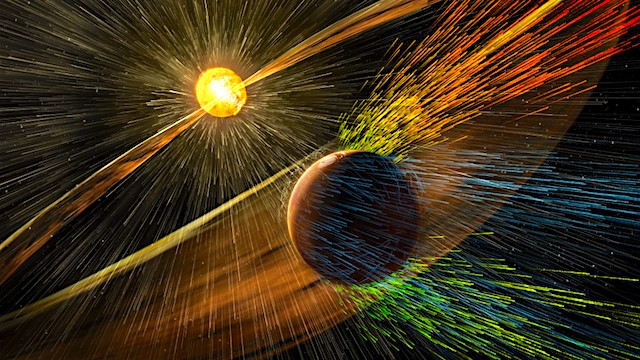 MAVEN research shows that atmospheric loss to space has been the major process driving climate change on Mars. Research using MAVEN data indicates that Mars’ atmospheric loss over time has been at least 0.8 bar CO₂ or the equivalent of a 23 meter-deep layer of H₂O across the entire Red Planet.
MAVEN research shows that atmospheric loss to space has been the major process driving climate change on Mars. Research using MAVEN data indicates that Mars’ atmospheric loss over time has been at least 0.8 bar CO₂ or the equivalent of a 23 meter-deep layer of H₂O across the entire Red Planet.
These results, based on current processes whose escape rates in the past are adjusted according to expected solar evolution, suggest that loss of gas to space has been the dominant process responsible for changing the climate of Mars from an early, wet, warmer environment to the cold, dry one that we see today.
The results have been published online in the ScienceDirect journal Icarus. [More at links]








